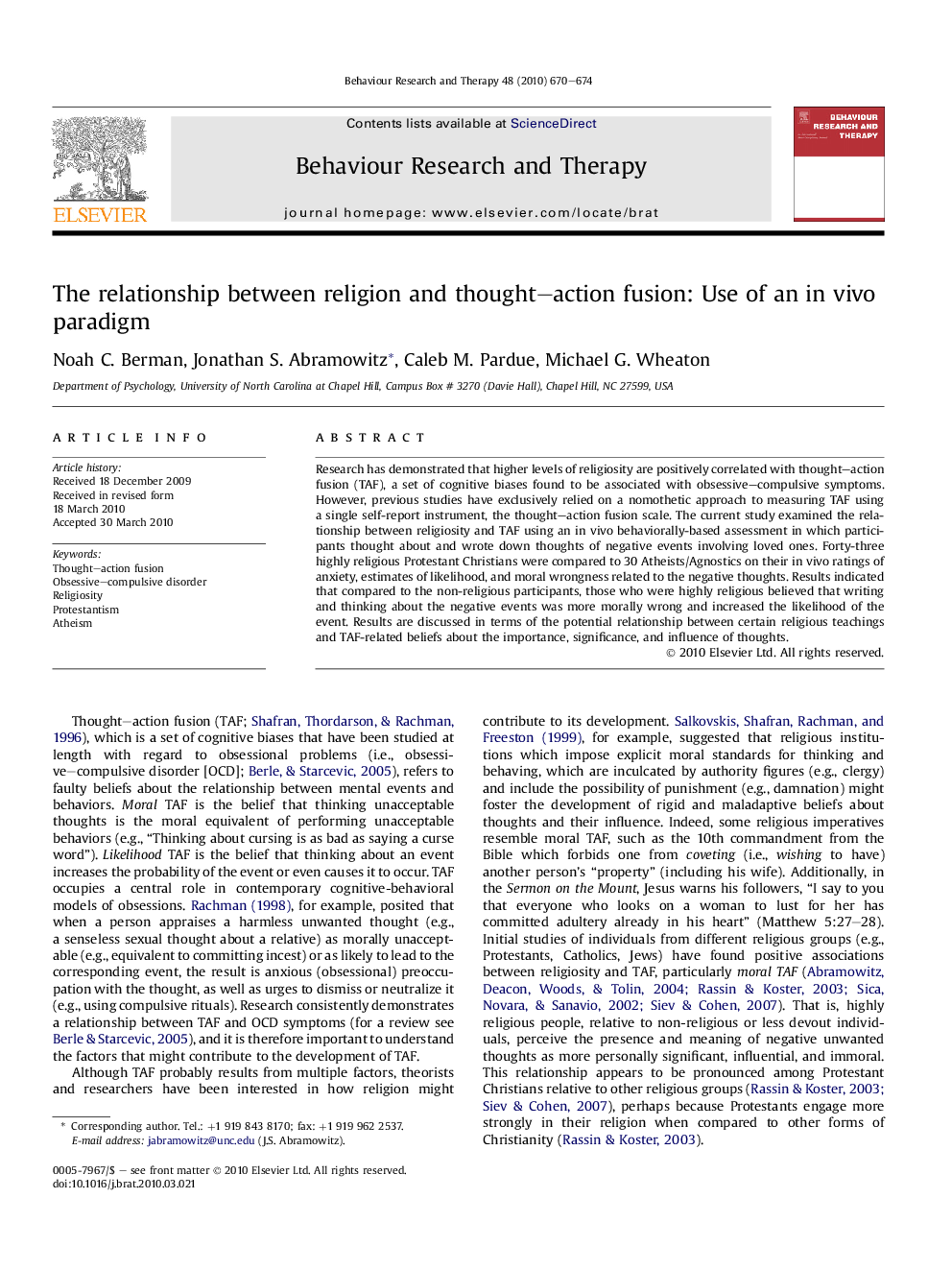| Article ID | Journal | Published Year | Pages | File Type |
|---|---|---|---|---|
| 902084 | Behaviour Research and Therapy | 2010 | 5 Pages |
Research has demonstrated that higher levels of religiosity are positively correlated with thought–action fusion (TAF), a set of cognitive biases found to be associated with obsessive–compulsive symptoms. However, previous studies have exclusively relied on a nomothetic approach to measuring TAF using a single self-report instrument, the thought–action fusion scale. The current study examined the relationship between religiosity and TAF using an in vivo behaviorally-based assessment in which participants thought about and wrote down thoughts of negative events involving loved ones. Forty-three highly religious Protestant Christians were compared to 30 Atheists/Agnostics on their in vivo ratings of anxiety, estimates of likelihood, and moral wrongness related to the negative thoughts. Results indicated that compared to the non-religious participants, those who were highly religious believed that writing and thinking about the negative events was more morally wrong and increased the likelihood of the event. Results are discussed in terms of the potential relationship between certain religious teachings and TAF-related beliefs about the importance, significance, and influence of thoughts.
